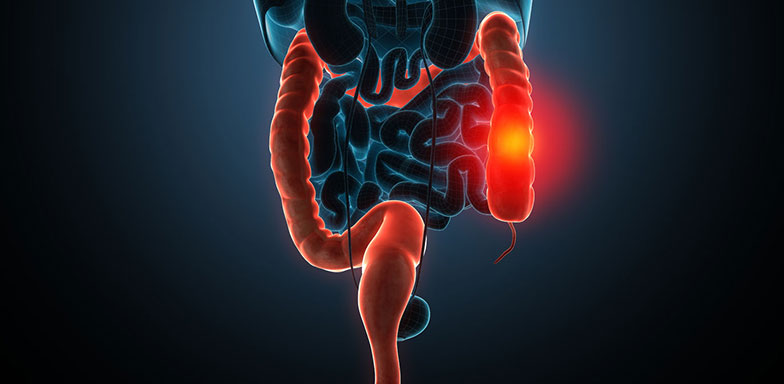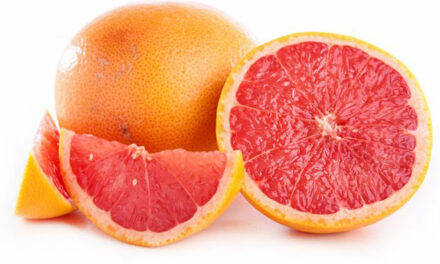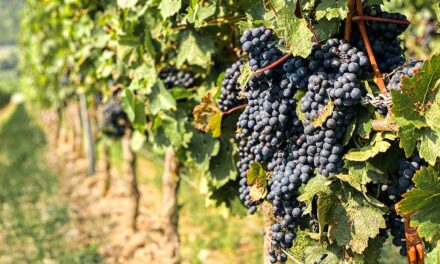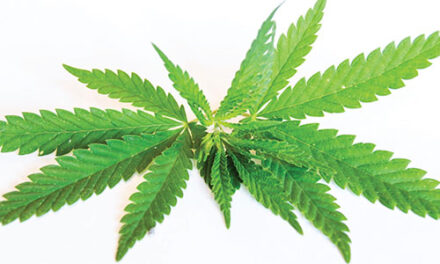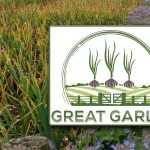Garlic has been an important herbal remedy for centuries. Found in carvings and paintings on the walls of Egyptian tombs, dating from 3700 BC, garlic’s uses as a remedy for cancer and other ailments are recorded in detail in Egyptian medical documents, dating from 1550 BC.
Modern studies and human observations have validated many medicinal effects of garlic and its potential to help lower the risk of various ailments, including colon cancer. The cancer preventive mechanisms of garlic, shown largely through research using KyolicTM Aged Garlic Extract® (AGE), an odorless supplement made from organic garlic by Wakunaga of America, are largely due to potent antioxidants, a high content of organosulfur compounds, an ability to stimulate immunological responsiveness, detoxify carcinogens, inhibit inflammation and prevent mutations that may lead to cancer.
Epidemiological Studies
Several population studies have found an association between a high intake of garlic and a reduced risk of certain cancers, including stomach and colon cancer. An analysis of the results of these studies, showed, that the higher the amount of garlic consumed, the lower the risk of stomach and colon cancer.
The “Iowa Women’s Study”1 is a large prospective study investigating whether diet and other risk factors are related to cancer incidence in older women. Results of the study showed a strong association between garlic consumption and colon cancer risk. There was a 50 percent lower risk of colon cancer in women who consumed the highest amounts of garlic, compared to those consuming a low level.
Several population studies conducted in China and Italy also showed repeatedly that consumption of allium vegetables, onions and especially garlic was associated with a reduced risk of stomach and colon cancer, sometimes as low as 50 percent.
The Nature of Colon Cancer
Colon Cancer is the third leading cause of deaths in the United States. It is a multistage disease that is initiated by a series of mutations in DNA that give rise to adenomatous polyps, of a benign nature, that may progress to full blown cancer. Colon cancer can have hereditary components, and is found in families, but external factors including environmental factors, lifestyle and diet play important role in the development of the disease.
Colon cancer develops slowly, over a period of 10 to 15 years; though people over 50 are most prone to getting the disease, colon cancer can develop at any age. The disease usually begins as a non-cancerous polyp that can progress with time into cancer, screening by colonoscopy is effective in lowering the cancer risk and increasing the chance for cure, by detecting and removing emerging adenomatous polyps. Cancer screening by colonoscopy is recommended starting at the age of 50, though people with a family history of the disease may begin at an earlier age and be tested more often.
Diet and Lifestyle in Prevention
While screening is important in reducing risk, diet and lifestyle are critical in supporting the body’s natural defenses, helping prevent the onset and growth of polyps and blocking their subsequent development into colon cancer.
Leading a physically active life, maintaining a healthy weight, not smoking and reduced levels of alcohol are important aspects of prevention; as diet goes, a diet rich in plant food, low levels of red meat and intake of milk products that contain calcium and vitamin D are some of the recommendations by the American Cancer Society.
Among the plant foods that have been associated with lowering the risk of colon cancer, garlic ranks as a highly effective protector. In some people a high consumption of fresh garlic may cause gastrointestinal adverse effects; such occurrences and the fact that the odor of garlic lingers on the skin and breath, prevents many from taking advantage of its health effects. Many have therefore turned to the odorless supplement Kyolic Aged Garlic Extract (AGE), as an effective way to seek protection against colon cancer. Currently, with over 700 scientific and medical publications showing the wide range of AGE health benefits, this odorless garlic supplement is the most researched and popular garlic supplement.
AGE a Natural Protectant against Colon Cancer
Kyolic Aged Garlic Extract (AGE), is produced by the Wakunaga Company from organically grown garlic, using a process of aging and extraction, at room temperature, for 20 months. Harsh volatile garlic components, such as allicin, are converted by this process to stable compounds, such as S-allyl cysteine, S-allyl mercaptocysteine and others. S-allyl cysteine is the major water-soluble organosulfur compound in AGE; it is a highly bioavailable and is used to standardize AGE, assuring quality control. The high quality control of AGE insures consistent efficacy in helping sustain consumer health, remaining the choice garlic preparation in clinical studies and research on the health effects of a garlic. AGE lacks harsh or toxic compounds, and can be ingested safely for years, for its health effects.
The wide range of AGE¡¦s anticancer actions has been reported in studies using model systems. Findings show that AGE and its organosulfur constituents inhibited colon cancer in a dose-dependent manner. In addition, AGE stimulated colon and liver glutathione S-transferases, enzymes assist in detoxifying carcinogens. Other studies have shown that AGE and its compounds with their high antioxidant action show anti-carcinogenic actions by scavenging toxic reactive oxygen species, unstable molecules that are waste products in metabolism, which have the ability to trigger cancer-mutations in DNA. Other effects of AGE found experimentally, were an inhibition of the binding of carcinogens to DNA, detoxifying carcinogens, blocking the proliferation of colon cancer cells and killing them by apoptosis, a mechanism of programmed cell death.
Human Studies
While epidemiological studies have shown the efficacy of garlic in lowering colon cancer risk, and experimental models found AGE and its components, largely water soluble S-ally cysteine and S-allyl-mercaptocysteine have anti-carcinogenic effects, the protective action of AGE and its efficacy in lowering the risk of colon cancer in humans had to be established by a clinical study.
To determine a potential protection against colon cancer in humans, Tanaka2 and colleagues carried out a randomized, double-blind, clinical trial, using high intake of AGE (AGE 2.4 ml/day) as an active treatment and low-dose AGE (AGE 0.16 ml/day) as a control.
The study enrolled 51 patients who were diagnosed with adenomatous polyps. Investigators assigned the patients randomly to two groups, after removing adenomas that were larger than 5 mm in diameter. Using colonoscopy, the investigators determined the number and size of adenomas before the patients began the intake of AGE (0 months) and at six and twelve months after intake. There were thirty-seven patients who completed the study; 19 in the active group, receiving AGE and 18 in the control group, receiving placebo.
The investigators found that in the control group the number of adenomas increased in linear fashion from the beginning of the study (baseline point); by contrast, in the group taking the high dose of AGE the size and number of adenomas were significantly suppressed, after the 12 months of treatment. These findings showed that the intake of Kyolic AGE has the potential to protect humans against colon cancer, by preventing the progression of precancerous colon adenomas into colon cancer.
The clinical study, showing AGE as a supplement with potential preventive effects against human colon cancer, adds to the results of several epidemiological studies showing a reduction of colon cancer by high garlic consumption.
At this point, with overwhelming evidence of garlic protection against colon cancer, it should be noted that a recent single prospective study from Harvard Medical School3, did not find a protective effect by the intake of fresh garlic. The study did not include AGE.
To possibly understand the discrepancy in results, it should be realized that the findings of efficacy by AGE in inhibiting the growth of precancerous adenomas and potentially inhibiting colon cancer, is partly due to the high standardization of its active ingredients. This is in contrast to fresh garlic cloves that cannot be standardized in the same way.
Depending on the conditions of their cultivation, garlic bulbs may contain up to 33 different lipid- and water-soluble organosulfur compounds, with varying inhibitory effects on colon cancer, as shown in laboratory studies.
In a prospective study, unknown are the number of bulbs (that means the dose of garlic components), that would be required for human intake to have an inhibitory effect on colon cancer. Food preparation methods are known to affect the potency of sulfur compounds in garlic. For example, microwave heating and oven cooking block the anti-cancer activity of some compounds in the fresh garlic. The Harvard study had no biomarkers that reflected the actual active garlic component in the human body.
By contrast, AGE is prepared at room temperature, with no heating in the process of its production, preserving its anticancer activity; in addition, S-allyl cysteine, the most prevalent organosulfur compound in AGE, has been shown experimentally to have a 98 percent bioavailability; this means it can be used potentially as a marker to reflect the intake of Aged Garlic Extract components.
References:
Steinmetz KA, KushiLH, Bostick RM, et al Vegetables, fruit and colon cancer in the Iowa Women’s Health Study. Am J. Epidemio. 1994: 139:1-13.
Tanaka S, Haruma K, Yoshihara M, Kajiyama G, Kira K, et al. Aged garlic extract has potential suppressive effect on colorectal adenomas in humans. J Nutr. 2006; 136:821S-826S.
Meng S, Zhang X, Giovannucci EL, et al No association between garlic intake and risk of colorectal cancer. Cancer Epidemiol. In Press; On line Dec 12 2012.

